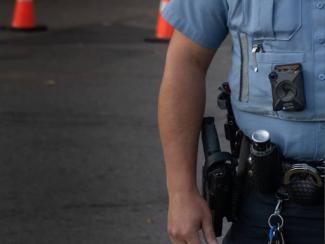
Arrests are still taking place in Homewood, Alabama, with community members protesting the police killing of 18-year-old Jabari Peoples and a lack of transparency surrounding bodycam footage. But the Alabama Law Enforcement Agency (ALEA) cited Alabama Act 2023-507, sponsored by Rep. Juandalynn Givan, to justify holding back in Peoples' case, and others.
Givan created the law in response to Emantic Bradford Jr.'s 2018 killing. But it wasn’t actualized until 2023 with a catch.
Givan worked with the District Attorneys Association, the Alabama Association of Chiefs of Police, and other law enforcement agencies to narrow her bill's scope to get it through. It transformed from allowing the public to access footage to only subjects and “personal representatives,” like attorneys and family members. It muddied the language so cops could still avoid releasing footage if it “would affect an ongoing active law enforcement investigation or prosecution.”
"Is it perfect? Absolutely not," Givan acknowledged. "It was written that we were going to come back the next year to try to tweak it.” But none of her amendments have since advanced.
Unfortunately, these are the dangers of even well-intentioned reforms. Requiring the support of other officials who support Black death means that reforms directly looking to eradicate anti-Blackness will often not pass without dangerous concessions, allowing police to evade accountability again and again.